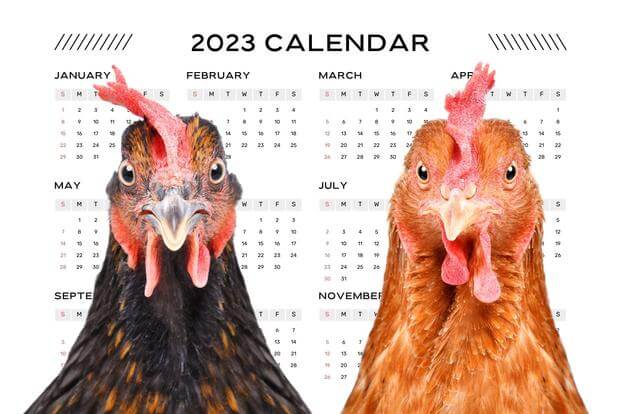What do you really need to transition successfully from the military in 2023? I bet the first thing that popped into your mind was money.
Totally agreed. Nothing like the certain ability to pay your bills to make your transition go smoothly.
Yet I also think you need a "Chicken Year" at the end of your service. Once you have announced your separation or retirement date, you would be eligible to play chicken during those last few months of your career and leave the command (with notice) when you have a job offer conveniently in hand. Just like so many civilians do.
You Need More Time
Strangely enough, the Army doesn't see it that way. The powers that be think the one thing you need to successfully transition is ... more time to complete TAP classes. So in December, the Army announced a new transition pilot program open to those eligible for retirement. You can now submit retirement up to two years in advance (instead of the usual 6-12 months), so you can attend TAP sooner
Here is the logic: Since the research says 70% of soldiers start TAP less than a year before transition, and those who start transition late have a more difficult time of it, more time will certainly ease the crunch that leaves service members in financial crisis. Problem solved, right?
Not About TAP Class
With all due respect, I don't think getting another year to complete TAP classes is going to do jack to help ease the crunch of transition for retirees or for separatees. Getting an extra year to go to TAP is the equivalent of giving a seventh-grader an extra week to finish reading "The Great Gatsby." Because who really wants to read "The Great Gatsby"? Or sit through TAP class ever?
As the transition master coach for the 11,000+ members of Military.com's Veteran Employment Project, I can tell you early preparation might help you find a certification program or an internship or give you time to apply to college. However, more time at the beginning of the process will not help you land a job.
It's All About the Timing
The factors that help you land the job are networking and timing. The truth is that no matter how well-prepared, ambitious and motivated you are, employers are not interested in talking to you two years ahead of the hiring process. Employers are ready to talk to you when the job opening appears, which is usually measured in weeks, not months or years. And you must be available when the job is available.
What Would Help Ease the Crunch of Transition?
The Army is right about one thing. Service members do need more time to transition -- but not at the beginning of the process. They need more time at the end to actually secure a job offer.
Landing a job before you leave the service is not the norm. Pew Research found in 2019 that only one in four service members had a job lined up before they separated or retired. According to the Department of Veteran Affairs, more than half of all veterans experienced 22 weeks of unemployment -- which is both hard on the service member and costly for the military in terms of unemployment compensation.
How to Play "Transition Chicken"
The financial crunch of transition for service members might be better solved if the military eased up restrictions so service members have a more flexible availability at the end of their careers.
I admit a whole year of "Transition Chicken" is probably too much, but what would it be like if you and your command were playing "Transition Chicken" for the last three or four months of your career? Granted, this would never work if you were in command or on deployment or in certain other high-demand jobs. But other than those, what would it be like?
In some ways, things would stay the same. If you were working at your military job during your "Chicken" months (and interviewing and networking and getting your medical done) and you did not find a job, you would leave at the agreed-upon time. No harm, no fowl.
However, if you landed a job in a "Chicken" month, you would be free to go with four weeks' notice. Granted, the command would be in a bit of a spot until your relief arrived, but that is how the game of chicken goes. There could be a shift in the manning model to accommodate those who are leaving the service and pay for it with the savings from unemployment compensation.
Thinking through the way civilian hiring works and offering something in the way of flexibility could make a huge difference to our transitioning military members. Because at the end of military service, that's what so many people want for our military members who have given so much. Respect for a job well done. Financial security for the family. The successful continuation of the mission for years to come.
Jacey Eckhart is Military.com's transition master coach. She is a certified professional career coach and military sociologist who helps military members get their first civilian job by offering career-level Master Classes through our Veteran Employment Project and on her website SeniorMilitaryTransition.com. Reach her at Jacey.Eckhart@Monster.com.
Fid Your Next Job Fast
Transitioning military, veterans and spouses may be qualified for the job, but they are missing the secrets of civilian hiring. Find out everything you need to know with our FREE master class series including our next class You can view previous classes in our video library. Questions for Jacey? Visit our Facebook page.







